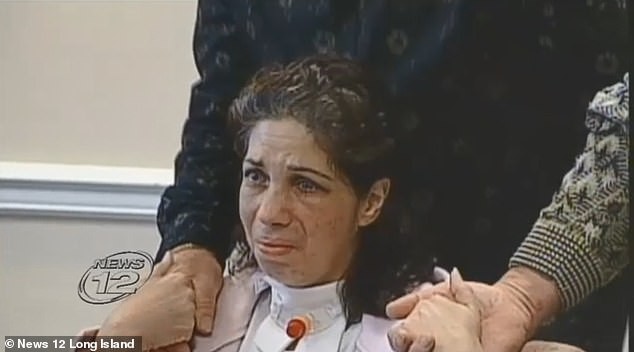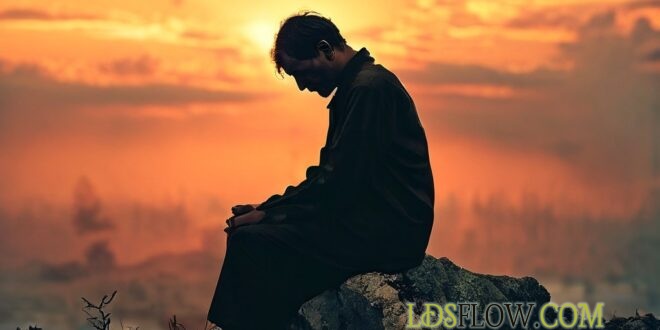The scriptural mandate to forgive all men is deceptively simple, yet profoundly challenging in practice. As I’ve grappled with this concept, I’ve come to realize that forgiveness is a multifaceted journey, one that tests our spiritual mettle and pushes us towards personal growth.
At its core, forgiveness raises questions about what it truly means to let go. Is it enough to simply cease hostilities, or does true forgiveness require us to actively rebuild relationships? While our human nature might seek to justify minimal effort, the example of Christ suggests a higher standard—one of genuine reconciliation and renewed connection.
The process of forgiveness is often complicated by broken communication. Ironically, it’s in these moments of disconnection that forgiveness becomes most crucial. When bridges are burnt, when our own actions have driven others away, we find ourselves in a paradox: needing to seek or offer forgiveness precisely when the channels for doing so seem closed.
In these moments of separation, we’re left with limited options. We can voice our remorse to the empty air, pray for healing, and hope that time and divine intervention will pave the way for understanding. It’s a humbling reminder of our mortal limitations in contrast to the infinite reach of the Atonement.

The asymmetry of power in forgiveness adds another layer of complexity. Seeking forgiveness requires vulnerability, while granting it means relinquishing both emotional satisfaction and leverage. This imbalance can breed reluctance, yet it’s precisely this willingness to make ourselves vulnerable that can lead to healing.
Perhaps the most challenging aspect of forgiveness is learning to forgive ourselves. The frustration of repeating mistakes, of hurting ourselves and others despite our best intentions, can be overwhelming. Yet self-forgiveness is crucial for moving forward and breaking destructive cycles.
President Hinckley’s recounting of Victoria Ruvolo’s forgiveness towards Ryan Cushing serves as a powerful example of forgiveness in action. Her ability to look beyond her own pain and see the humanity in her assailant is truly inspiring. While such profound forgiveness may seem beyond our capabilities, it gives us something to aspire to. Here is a great quote from his talk a while back.
How would you feel toward a teenager who decided to toss a 20-pound frozen turkey from a speeding car headlong into the windshield of the car you were driving? How would you feel after enduring six hours of surgery using metal plates and other hardware to piece your face together, and after learning you still face years of therapy before returning to normal and that you ought to feel lucky you didn’t die or suffer permanent brain damage? . . . .
The victim, Victoria Ruvolo, a 44-year-old former manager of a collections agency, was more interested in salvaging the life of her 19-year-old assailant, Ryan Cushing, than in exacting any sort of revenge. She pestered prosecutors for information about him, his life, how he was raised, etc. Then she insisted on offering him a plea deal. Cushing could serve six months in the county jail and be on probation for 5 years if he pleaded guilty to second-degree assault. . . .
Cushing carefully and tentatively made his way to where Ruvolo sat in the courtroom and tearfully whispered an apology. “I’m so sorry for what I did to you.” Ruvolo then stood, and the victim and her assailant embraced, weeping. She stroked his head and patted his back as he sobbed, and witnesses, including a Times reporter, heard her say, “It;s OK. I just want you to make your life the best it can be.”

In my own life, I’ve found myself on both sides of the forgiveness equation more often than I’d like to admit. Each instance—whether I’m seeking forgiveness or struggling to grant it—serves as a reminder of our universal need for divine forgiveness. The Lord’s Prayer beautifully encapsulates this dynamic: “Forgive us our debts, as we forgive our debtors.” As we learn to forgive, we not only make ourselves more worthy of God’s forgiveness but also grow closer to embodying His divine nature.
This journey of forgiveness is ongoing. I often find myself too slow to forgive and too quick to seek forgiveness from others. Yet as I work to balance this equation, I feel myself maturing spiritually and drawing nearer to God. It’s a challenging path, but one that leads to personal growth and a deeper connection with the divine.
In the end, forgiveness isn’t just about releasing others from our judgment—it’s about freeing ourselves from the burden of resentment and aligning our hearts more closely with God’s. It’s a difficult lesson, but one that offers profound rewards in our spiritual journey.




